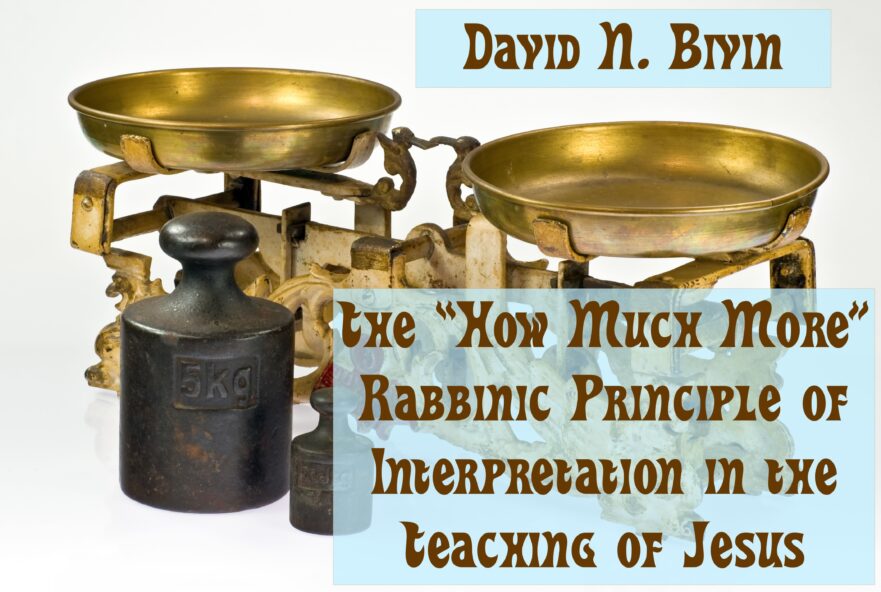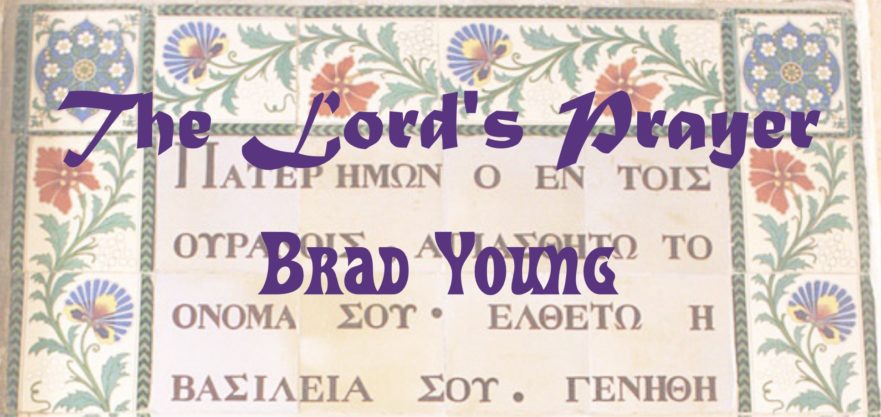Hebrew words usually have many shades of meaning, and the Greek translator of the conjectured Hebrew “Life of Jesus” could convey only one sense of each Hebrew word’s meaning. When the standard Greek translation of a Hebrew word became fixed, Greek translators often employed this standard translation even when the Hebrew word it translated appeared with an obviously different meaning.
The Lord’s Prayer 4: “Thy Kingdom Come” (Part 1)

Probably no other aspect of Jesus’ teaching has been so greatly misunderstood as the Kingdom of Heaven. Certainly, few themes are more essential for understanding Jesus.
Mary and Martha: The Rest of the Story

In Robert L. Lindsey’s theory of gospel transmission, the Hebrew version of Jesus’ biography and its Greek translation have both been lost. Although none of the synoptic Gospels preserves the original text in its entirety, together they do preserve all, or nearly all, of the stories in the original work.
Hebrew Nuggets, Lesson 12: menorah (Part 1)

Menorah is one of the many Hebrew words that have entered the English language.
The Lord’s Prayer 1: Introduction

Too often, the importance of the Jewish background of the prayer and of the language that Jesus used has been overlooked or minimized.
Sidebar: A Conjectured Process of Gospel Transmission Outlined by Robert Lindsey

The stages of transmission from the earliest Hebrew biography of Jesus to the canonical Gospels of Matthew, Mark and Luke.
The Lord’s Prayer 3: “Hallowed Be Thy Name”

How can the name of God be “hallowed”? Actually, the sense of the word might better be expressed in English by “sanctify.” The whole phrase could be translated, “May your name be sanctified.”
At the Feet of a Sage

Jewish sages and their disciples were dependent upon the hospitality of the communities they visited.
Hebrew Nuggets, Lesson 11: Hallelujah (Part 3)

Last of the three-part series on the Hebrew word “Hallelujah.”
Discovering Longer Gospel Stories

Research by Robert L. Lindsey has helped clarify the process by which gospel texts were preserved and transmitted. Luke desired, he said in his prologue, to present to Theophilus an “orderly” account. Such ordering is to be noted in Matthew and Mark, as well. These attempts at ordering help us understand why so many of the synoptic gospel stories appear in a different chronological order from gospel to gospel.
Hebrew Nuggets, Lesson 10: Hallelujah (Part 2)

The Hebrew word ha·le·lu·YAH is used as the next object lesson in Hebrew Nuggets.
The Lord’s Prayer 2: “Our Father Who Art in Heaven”

The description of God as “father” is not coincidental. The father figure was of great significance in the Hebrew family.
The Traveling Sage

Jewish teachers of first-century Israel lacked the sophisticated methods of mass communication we have today. Consequently, the sages of Jesus’ day spent much of their time traveling throughout the country, much like the biblical prophets, to communicate their teachings and interpretations of Scripture.
Was Jesus a Rabbi?

It was only after 70 A.D. that רַבִּי (rabi) became a formal title for a teacher, and thus cannot correctly be applied to Jesus.
The “How Much More” Rabbinic Principle of Interpretation in the Teaching of Jesus

The use of simple-to-complex reasoning (kal vahomer in Hebrew) is as frequent in the teaching of Jesus as in the teaching of the sages.
Hebrew Nuggets, Lesson 9: Hallelujah (Part 1)

The Hebrew word ha·le·lu·YAH is used as the next object The Hebrew word ha·le·lu·YAH is used as the next object lesson in Hebrew Nuggets
Hebrew Nuggets, Lesson 8: Abba (Part 4)

Abba is an Aramaic word meaning “the father.” This word was borrowed by Hebrew speakers and used in the sense of “Daddy.” In lesson eight, the word Abba is used to teach another Hebrew letter.


